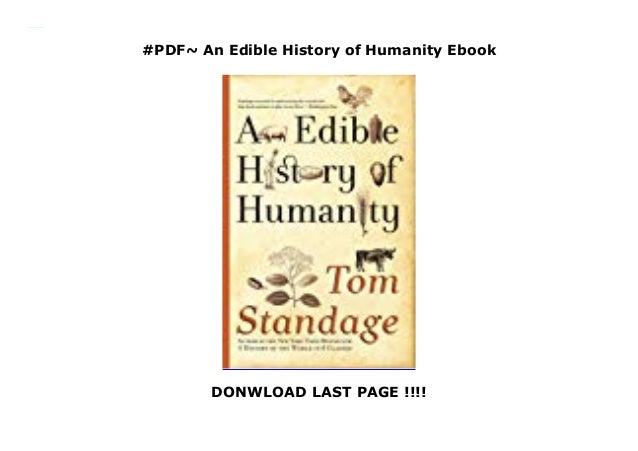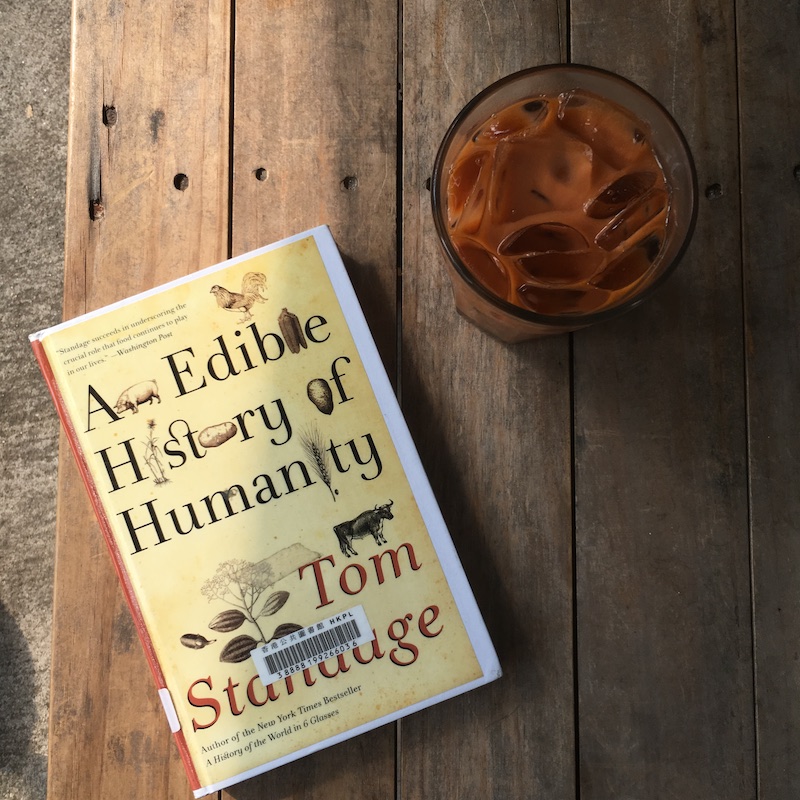

He's the business editor of The Economist and the author if "An Edible History of Humanity." And it's nice to have you on the TALK OF THE NATION today. But first, Tom Standage joins us from the studios of member station KUOW in Seattle. Later in the program, we'll talk about the crash of Air France Flight 447 and the problems posed if we never find out what happened. Email us: And you could join the conversation on our Web site. If you have questions about the intersection of food and history, how surplus cereals enabled the Egyptians to construct the pyramids, how the search for spice led to both exploration and empire and how canned food changed the calculus of warfare, our phone number: 80. Standage argues that the abundance or paucity of food explains the transformation of human society from the dawn of civilization to the collapse of the Soviet Union. Now Tom Standage proposes of formula for historians: follow the food. Watergate provided reporters with a pithy principle for political scandal: follow the money. He lives in London.This is TALK OF THE NATION.

His writing has also appeared in the Daily Telegraph, the New York Times and Wired. He is the author of six history books, including An Edible History of Humanity, the New York Times bestseller A History of the World in Six Glasses and The Victorian Internet. Tom Standage is digital editor at the Economist and editor-in-chief of its website,. And today, in the culmination of a process that has been going on for thousands of years, the foods we choose in the supermarket connect us to global debates about trade, development and the adoption of new technologies.ĭrawing from many fields including genetics, archaeology, anthropology, ethno-botany and economics, the story of these food-driven transformations is a fully satisfying account of the whole of human history. Food has been employed as a military and ideological weapon.

It helped to found, structure, and connect together civilizations worldwide, and to build empires and bring about a surge in economic development through industrialization. An Edible History of Humanity is an account of how food has helped to shape and transform societies around the world, from the emergence of farming in China by 7,500 BCE to today’s use of sugar cane and corn to make ethanol.įood has been a kind of technology, a tool that has changed the course of human progress. It has acted as a tool of social transformation, political organization, geopolitical competition, industrial development, military conflict and economic expansion. From the publisher: The bestselling author of A History of the World in 6 Glasses charts an enlightening history of humanity through the foods we eat. Throughout history, food has done more than simply provide sustenance.


 0 kommentar(er)
0 kommentar(er)
